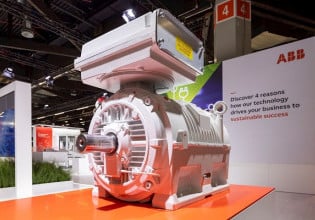M
Is it true that as long as sleeping frequency increases, the torque on the rotor shaft increases too? I ask you because I have read this in a book (John E.Traister, "Handbook of Power Generation", Prentice-Hall publication, Reading, 1983) but my coordinator professor doesn't agree with that affirmation.
I will quote the exact paragraph: "As sleeping frequency increases, torque on the rotor shaft increases. That could result into severe damage of generator."
Thank you, with very best regards,
Marius Jantea
I will quote the exact paragraph: "As sleeping frequency increases, torque on the rotor shaft increases. That could result into severe damage of generator."
Thank you, with very best regards,
Marius Jantea






